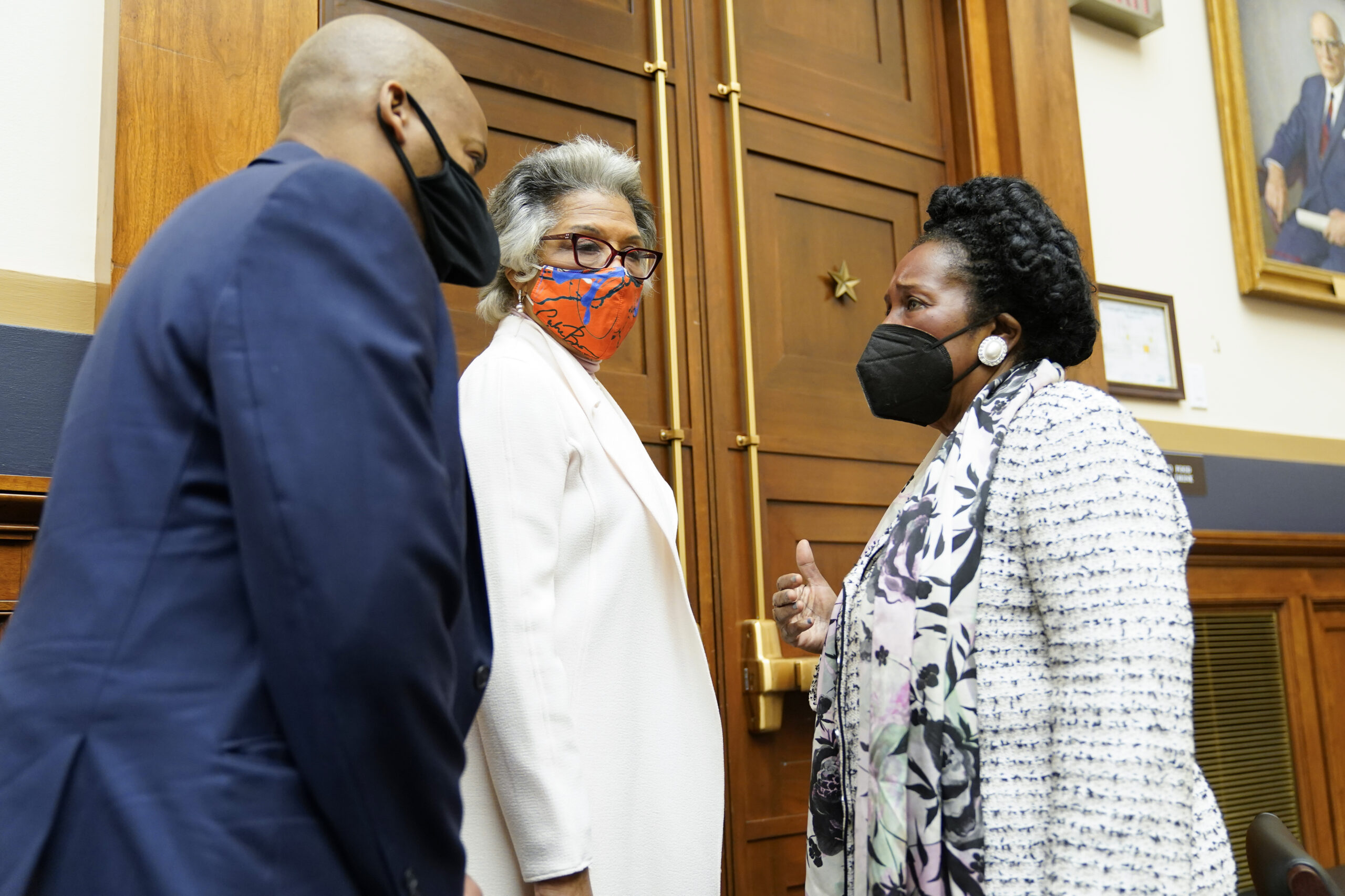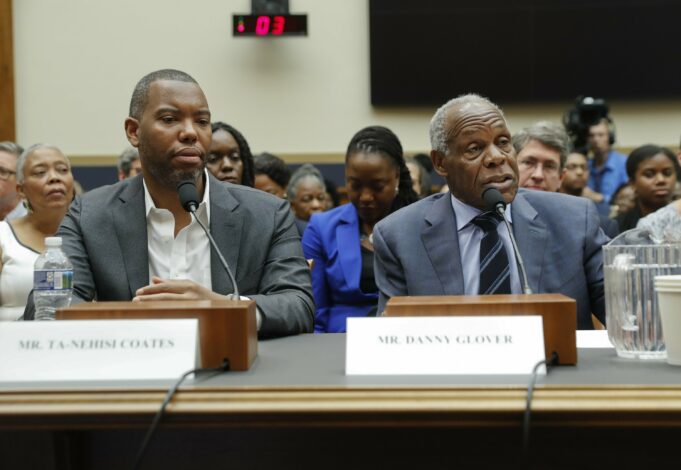WASHINGTON—What some are describing as “jubilation” swept over circles of Black activists April 14, when two Congressional committees advanced legislation for votes on the House floor which they have literally been campaigning for, for decades.
First, the House Oversight Committee marked up HR-51, the Washington, D.C. Admission Act, which would make the national capital city a state, and then hours later, the House Judiciary Committee similarly reported HR-40 to the full House a bill to establish a Commission to study the effects of enslavement on Black people and consider proposals for reparations.
The Judiciary vote was a major victory for advocates of “reparative justice” who have labored since 1989—when Rep. John Conyers (D-Mich.), first introduced the measure—to win support for redressing the lingering effects of enslavement on Black people in this country. Democrats on the Committee advanced the legislation over the objection of all the committee’s Republicans by a vote of 25 to 17.
Mr. Conyers titled the bill HR-40 after the unfulfilled Civil War-era promise to give formerly enslaved African Americans “40 acres and a mule,” and he introduced the measure in each succeeding session of Congress until his retirement in 2017. The bill is now on track for a floor vote in the House of Representatives in the weeks ahead.
“The goal of this historical Commission is to bring American society to the new reckoning with how our past affects the current conditions of African Americans and to make America a better place to help and truly study our disadvantages,” Rep. Sheila Jackson Lee (D-Texas), lead sponsor of the measure declared. The bill can help “confront the stark societal disparities occurring in the African American community today.”
“This is truly a milestone in the history of the multi-generational struggle for reparations,” added Dr. Ron Daniels, convenor of the National African American Reparations Commission (NAARC). “I am proud of the role that NAARC and N’COBRA (the National Coalition of Blacks for Reparations) played in shaping this potentially transformational legislation. We commend Congresswoman Sheila Jackson Lee for brilliantly upholding the legacy of Congressman John Conyers, Jr. as the Lead Sponsor on HR-40.”

“On Wednesday, April 14th, as I witnessed the historic vote of The House Judiciary Committee on HR 40, I was absolutely overwhelmed with jubilation,” said JoAnn Watson, an ally of Rep. Conyers and a NAARC Commissioner. “But my joy was tempered by memories of many who are no longer around to celebrate this breakthrough. For many decades, I was mentored by ‘Reparations’ Ray Jenkins, Congressman John Conyers, Dr. Imari Obadele, Rev. Gaidi Obadele, and the Honorable Chokwe Lumumba, among other luminaries in the Reparations movement.
“So, I experienced unspeakable joy in observing the approval to create a Commission to study the impact of enslavement and to develop proposals to remedy the torturous legacy of terrorism, tragedy and trauma that has persisted since 1619,” she continued.
Republicans on the Judiciary Committee—even the Black Republican member—were solidly opposed, arguing that reparations would force citizens who have no history as enslavers in their family or even those who had family members who fought to abolish slavery to have their tax dollars used to pay for the evil deeds of slave owners.
“Spending $20 million in taxpayer money to reach a conclusion you already know what it’s going to be,” complained ranking Republican Jim Jordan (Ohio). “Look, everyone knows how evil slavery was, wrong as wrong can be. But this is not something we should be passing.”
Rep. Burgess Owens (R-Utah), one of two Black Republicans in the House, characterized the legislation as portraying Black communities as helpless while ignoring their successes. “Slavery was and still is an evil,” he said. “Reparation is divisive. It speaks to the fact that we are a hapless, hopeless race that never did anything but wait for White people to show up and help us, and it’s a falsehood.
“Forty years later, we’re now electing a president of the United States, a Black man. Vice president of the United States, a Black woman. And we say there’s no progress?” Rep. Owens continued. “Those who say there’s no progress are those who do not want progress.”
Originally, HR-40 proposed creating a Commission to study the issue of the enslavement of Africans and its consequences. It was seen as an effective educational and organizing tool by reparations advocates and never received more than 50 Co-Sponsors.
Then, in 2015, NAARC and N’COBRA urged Mr. Conyers to change HR-40 to a bill that would offer remedies for enslavement and government sanctioned discriminatory policies and practices, and he agreed.
The current bill will establish a “Commission to Study and Develop Reparations Proposals for African Americans,” and it now has more than 180 co-sponsors. The bill needs 218 votes to pass in the House. It also enjoys the support of Speaker of the House Nancy Pelosi and Majority Leader Steny Hoyer and President Biden has signaled that he is open to supporting a bill to study slavery. In the evenly divided Senate, the measure would need 60 votes to overcome a filibuster.
The bill would establish a 15-person commission that would study the effects of slavery and racial discrimination in the United States from before the country’s founding to today. The commission would then submit to Congress its findings and “appropriate remedies” on how best to compensate Black Americans.
Dr. William Darity is a Black economist and a professor at Duke University. He favors the concept of reparations for slavery, but sees HR-40 as a flawed vessel to achieve the goal of complete reparative justice.
“Leaving the legislation completely open-ended leaves us with no sense of what the quality is of the report that will be given or what will be proposed,” he told this writer. “I could imagine any number of policies that are brought forward that are going to be extremely inadequate,” he said.
“It’s possible that the Commission may ultimately recommend that there be a more elaborate apology made to Black Americans. Or the Commission could conclude that it should replicate the type of housing voucher plan that was introduced in Evanston, Illinois, and call that reparations and call it a day,” added Dr. Darity.
“So, I think very specifically, the legislation should direct the Commission to first identify Black American descendants of U.S. slavery as the recipients. Second, commit the Commission to generating a proposal that would eliminate the racial wealth gap in the United States, which would require an expenditure of at least $11 trillion. And third, commit the Commission to designing a proposal for Congress that would prioritize direct payments to the eligible recipients.
“And to the extent that the law doesn’t do any of those three things and never has, it’s been inadequate. I think people are enthusiastic about this because it represents what seems to be a step forward in terms of the reparations movement. But I think very few people have actually read the bill,” Dr. Darity continued.
In addition, he faults the legislation for compensating commissioners with stipends up to $172,000 each, in addition to their expenses, and he argues that the size of the body is unwieldy, there should be no more than nine commission members.
Some other communities and organizations are separately considering reparations. From the state of California to cities like Amherst, Massachusetts; Providence, Rhode Island; Asheville, North Carolina; and Iowa City, Iowa; as well as religious denominations like the Episcopal Church; and prominent colleges like Georgetown University in Washington, D.C.
“That is the basis of this commission, to be able to look globally at the issue of slavery as the original sin and the brutality of it, and to then take the journey as it looks at the stark disparities in the African American community,” said Rep. Jackson Lee. “I hope we will not take the opportunity to point blame or to cast any actions of racism as one party or the other. It was America’s sin and that’s what we hope to address.”
“Reparations, unquestionably, is an issue whose time has come,” said Nkechi Taifa, a Civil Rights Attorney and a NAARC Commissioner. “I have waited 50 years for this day, and 32 years since HR 40 was first introduced. I’m no longer a teenager, but an elder. It’s time for an official reckoning of the past and the healing that can come from a reparations settlement—distinct from and not to be confused with ordinary public policy, to be fashioned in as many ways as necessary to equitably address the era of enslavement and its lingering injustices that manifest today.”
“Slavery was indeed ended 150 years ago but racism never took a day off and is alive and well in America,” said Kamm Howard, Co-Chair of N’COBRA and a NAARC Commissioner. “You can ask the family members of Daunte Wright, Breonna Taylor, Ahmaud Arbery or George Floyd. Black folks in this country cannot keep living and dying like this. But we’ll be forced to do so if White folks in America continue to refuse to look back at history.”













